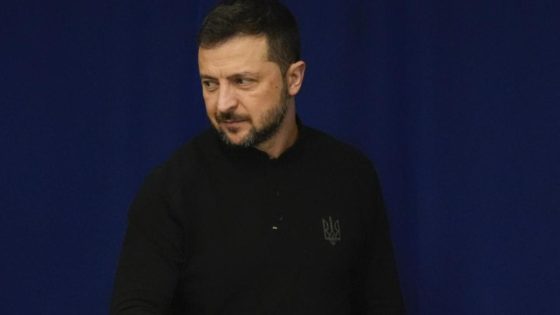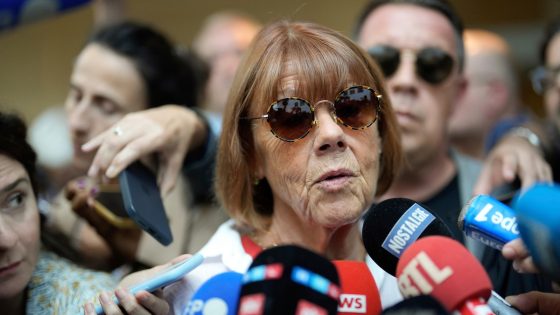Ukrainian President Volodymyr Zelenskiy has urged global leaders to stand with his country and not seek “a lull” instead of a “real, just peace” more than two years into Russia’s war.
At a time when he faces growing pressure from allies and some of his fellow Ukrainians to negotiate a ceasefire, Zelenskiy told the United Nations General Assembly there is no alternative to the peace formula he presented two years ago.
It seeks the expulsion of all Russian forces from Ukraine, accountability for war crimes, release of prisoners of war and deportees, nuclear safety, energy and food security and more.
“Any parallel or alternative attempts to seek peace are, in fact, efforts to achieve a lull instead of an end to the war,” Zelenskiy said, urging countries to “put pressure on” Russia.
“Do not divide the world. Be united nations,” he implored.
“And that will bring us peace.”
Russia has not yet had its turn to speak at the assembly’s annual gathering of presidents, prime ministers, monarchs and other high officials.
Low-level Russian diplomats occupied the country’s seats in the huge assembly hall during Zelenskiy’s speech.
President Vladimir Putin is not attending this year’s high-level meetings at the General Assembly; Foreign Minister Sergey Lavrov is expected to give the country’s address instead, on Saturday.
In Moscow on Wednesday, Kremlin spokesman Dmitry Peskov lambasted remarks that Zelenskiy made the day before, when the Ukrainian president told the UN Security Council that Russia needs to “be forced into peace”.
Dmitry Peskov called that position “a fatal mistake” and “a profound misconception, which, of course, will inevitably have consequences for the Kyiv regime”.
Ukraine and Russia are locked in a grinding fight along a 1000km front line.
The war began when Russia invaded in February 2022, claiming among other explanations that it was safeguarding Russian speakers in Ukraine.
During the fighting, Russia has gained momentum in Ukraine’s east.
Ukraine, meanwhile, startled Russia by sending troops across the border in an incursion last month.
Ukrainian officials have rejected a Chinese and Brazilian peace plan, saying it would just buy the Kremlin time.
“When some propose alternatives, half-hearted settlement plans, so-called sets of principles, it not only ignores the interests and suffering of Ukrainians who are affected by the war the most, it not only ignores reality, but also gives Putin the political space to continue the war,” Zelenskiy told the assembly on Wednesday.
To proponents of alternative plans, he chided: “You will not boost your power at Ukraine’s expense.”
Putin warned members of the NATO military alliance on Wednesday that Russia could use nuclear weapons if it was struck with conventional missiles and that any assault on Russian territory supported by a nuclear power would be considered a joint attack.
The decision to change Russia’s official nuclear doctrine is the Kremlin’s answer to deliberations in the US and UK about whether or not to give Ukraine permission to fire conventional foreign missiles into Russia.
Putin, opening a meeting of Russia’s Security Council, said that the changes were in response to a swiftly changing global landscape which had thrown up new threats and risks for Russia.
The 71-year-old Kremlin chief, the primary decision-maker on Russia’s vast nuclear arsenal, said he wanted to underscore one key change in particular.
“It is proposed that aggression against Russia by any non-nuclear state, but with the participation or support of a nuclear state, be considered as their joint attack on the Russian Federation,” Putin said.
“The conditions for Russia’s transition to the use of nuclear weapons are also clearly fixed,” Putin said, adding that Russia would consider such a move if it detected the start of a massive launch of missiles, aircraft or drones against it.
Russia reserved the right to also use nuclear weapons if it or ally Belarus were the subject of aggression, including by conventional weapons, Putin said.
Putin said the clarifications were carefully calibrated and commensurate with the modern military threats facing Russia – confirmation that the nuclear doctrine was changing.
Zelenskiy’s chief of staff Andriy Yermak said the changes were a Russian attempt to intimidate the world.
“Russia no longer has any instruments to intimidate the world apart from nuclear blackmail,” Yermak said on Telegram.
“These instruments will not work.”
with Reuters
Source Agencies




